Dr. Brian Copeland, professor at Vancouver School of Economics and one of the most influential researchers in the field of Trade and Environment taught a course on Nonrenewable Resource Economics.




The courses are taught by professors from Vancouver School of Economics as well as by members of Lima School of Economics who are leading researchers in their areas of specialization.
The 2017 Lima Summer School is a great opportunity for postgraduate and advanced undergraduate students in Latin America and all around the globe to interact with and learn from a world-class faculty. It also offers recent graduates and practitioners in economics the opportunity to develop and strengthen their areas of expertise.
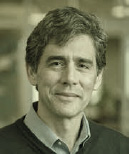
The Vancouver School of Economics (VSE) is pleased to be once again a partner of Lima School of Economics in the upcoming 2017 Lima Summer School. The VSE has a long tradition of international collaborations in research and teaching. The Summer School provides a unique opportunity of enhancing collaborations between VSE faculty members and students and scholars from Peru and the rest of South America.
In the Summer of 2017, two VSE faculty members will teach mini courses in various fields of economics as part of the Lima Summer School. We are very excited to be part of what will be a great opportunity for students and young professional economists to learn about of state-of-the-art research in economics, enhance their career prospects, and prepare them for further studies.
Hoping that you will join us in Lima next year!
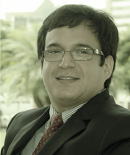
LimaSE is an initiative of the Department of Economics at Universidad de Piura. At LimaSE we promote graduated level programs in economics that enhance advanced learning and research, as well as strengthen the expertise of students, academics and practitioners in the field.
In association with Vancouver School of Economics, one of the top departments of economics in the world, we are pleased to organize the Lima Summer School in Economics. Our Summer School offers prospective participants from Peru, Latin America and all around the globe, a world-class academic experience, a unique collaborative environment with top researchers, and the opportunity to experience one of the most vibrant and dynamic cities on the South American Pacific Coast.
We look forward to meeting you in Lima for our 2017 Summer School!
This course offers a review of recent developments in public finance, with special emphasis on taxation and social security. For each topic, we will begin with a theoretical grounding, followed by an exploration of empirical findings and policy innovations. Topics covered may include commodity taxation, income taxation, tax incidence, environmental taxation, pensions and savings, pensions and retirement, and the health capacity to work at older ages.
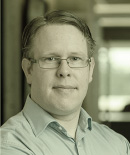
Dr. Kevin Milligan is Professor of Economics in the Vancouver School of Economics at the University of British Columbia, and is also a Scholar-in-Residence with the C.D. Howe Institute and a Research Associate of the National Bureau of Economic Research. Since 2011, he has served as Co-Editor of the Canadian Tax Journal. He studied at Queen’s University and the University of Toronto, receiving his Ph.D. in 2001. His research spans the fields of public and labour economics, with a focus on how the Canadian tax and transfer system affects the decisions and wellbeing of individuals and families. Dr. Milligan research has been published in several leading journals in economics such as JPE, RESTAT, Journal of Labor Economics, Journal of Health Economics and the Journal of Econometrics.
Weak instruments and related issues have been an important area of research in Econometrics during the last 20 years. In this course, we will survey the main findings of this literature. We will discuss the consequences of having weak instruments and how one can detect their presence. More importantly, we will explore modern techniques designed to produce reliable results regardless of whether instruments are weak or strong. Additionally, we will discuss the related issue of weak identification in nonlinear econometric models estimated by GMM, Maximum Likelihood and related methods, which are routinely used in empirical Micro and Macro economics.
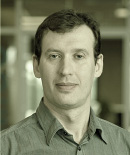
Dr. Marmer received his undergraduate and Master’s degrees in Economics from the Hebrew University of Jerusalem, Israel. He worked at the Bank of Israel and taught as an instructor at the Hebrew University before continuing to PhD studies at Yale University in New Haven, USA. He received his PhD in Economics from Yale in 2005, came to UBC as an Assistant Professor of Economics in the same year, and was later promoted to an Associate Professor in 2012. His main area of research is econometrics, where he has been working on the issues of misspecification, identification, statistical inference for auctions, and nonlinear and non-stationary time series. Since 2005, he published eleven scholarly papers including seven papers in Journal of Econometrics, which is a leading scholarly journal in econometrics.
The U.S. financial crisis of 2008 has brought into relief the existence of fundamental frictions in financial intermediation and capital markets in rich countries. What can we learn about these recent phenomena that would be useful for economies like Peru? A growing body of finance and economics research is starting to bridge the gap between the well-known practices and trends in U.S. or Europe and emerging countries like Peru, Chile, Argentina, Mexico, India and China. This short course will offer new insights to policymakers, analysts and practitioners by reviewing some of the most important discoveries of the last 15 years regarding emerging markets finance, with emphasis both on the econometric methodology and the key lessons for banking and corporate finance.
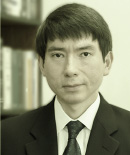
Dr. Gabriel Natividad is a Professor of Economics at Universidad de Piura (Lima) and a member of the Lima School of Economics. He received his PhD at UCLA. His finance-related research has been published in the Journal of Finance, the Review of Financial Studies, the Journal of Financial and Quantitative Analysis, and the Review of Corporate Finance Studies. His work also spans the fields of industrial economics and strategy, and has been published in the RAND Journal of Economics, the Journal of Industrial Economics, the Journal of Economics & Management Strategy, Management Science, Organization Science, and Strategy Science. Born in Lima in 1977, he studied Economics at Universidad del Pacífico, where he won the Premio Robert Maes in 1995, 1997, 1998, and the Premio Robert Maes Especial in 1999.
The 2017 Lima Summer School in Economics will take place at the Lima Campus of Universidad de Piura (UDEP), from February 20th to February 28th 2017. UDEP Lima Campus is located at Calle Mártir José Olaya 162, in the Miraflores District.
Courses will be held on mornings and afternoons according to the following schedule:
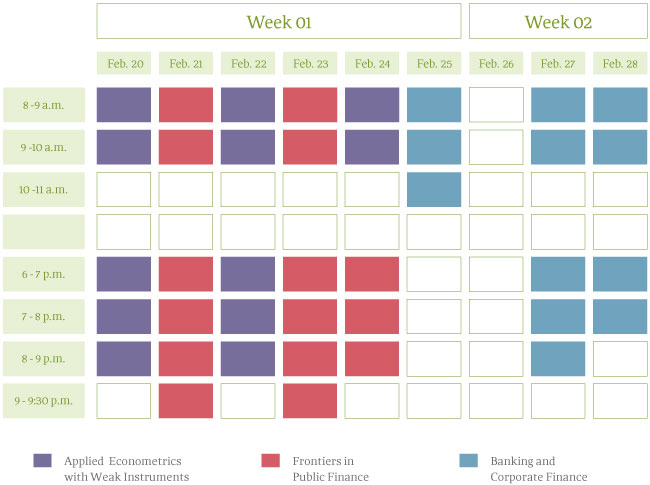

The following table indicates the investment corresponding to each individual course:
| Course Name | Total Number of Hours | Investment per course |
|---|---|---|
| Frontiers in Public Finance: Taxation and Social Security | 14 hours | US$ 480 |
| Applied Econometrics with Weak Instruments | 12 hours | US$ 440 |
| Banking and Corporate Finance in Emerging Economies | 12 hours | US$ 440 |
Discounts:
A 20% total discount will be applied to participants registering in the full program (all three courses), while a 10% discount will be applied to participants registering in two courses. These discounts only apply to admitted participants that register in the Summer School by Dec 15th, 2016.
These amounts do not cover travel or accommodation expenses. Participants from outside Lima should make their own arrangements in order to cover these costs.
Payment instructions will be provided to admitted candidates by the Summer School Admissions Office.
At the conclusion of the Summer School, participants will receive a certificate indicating the courses and the number of total hours attended.
The official registration for the Summer School has ended on Jan 31st, 2017. However, we have a wait list for some of the courses. If you are interested in registering in a given course, please submit your registration form and we will contact you if a spot becomes available.
In order to apply for the Summer School, prospective students should download and submit the following registration form to the email address: summerschool@udep.pe. Candidates will be informed of their acceptance decision on a rolling basis.
Registration Form

LimaSE will award three Summer Scholarships to participate in the 2017 Lima Summer School in Economics.
In addition to the Registration Form, individuals interested in being considered for the Summer Scholarship must also submit scanned copies of the following documentation before December 1st, 2016 to the email address summerschool@udep.pe:
Scholarships will be awarded on a merit basis, and the Award Committee decisions will be based on the information provided by the candidates in their application documents.
Only those who apply to the full program (all three courses) will be considered for the LimaSE Summer Scholarship.
The Summer Scholarship only covers the tuition costs and doesn´t include travel or accommodation expenses. Participants from outside Lima should make their own arrangements in order to cover these costs.
Dr. Brian Copeland, professor at Vancouver School of Economics and one of the most influential researchers in the field of Trade and Environment taught a course on Nonrenewable Resource Economics.
Dr. Tom Ross, professor at Sauder School of Business at UBC and Director of the Phelps Center for the Study of Government and Business gave a course on Economics of Competition Policy.
Dr. Jose Galdo, professor of Public Policy and Economics at Carleton University and Associate Member of LimaSE, comments on his experience teaching a course on Policy Evaluation at Lima Summer School of Economics
Martin Castillo, student at Universidad de Chile and Research Assistant at the Central Bank of Chile, talks about his experience as participant in the 2016 Lima Summer School in Economics.
And of course, while you attend the Summer School you can enjoy one of the most vibrant and dynamic cities of South America. According to the New York Times, Lima’s winning formula is: “A rich pre-Columbian heritage, emerging art and fashion scenes, and remarkably great food”. Watch the NYT video “36 hours in Lima”!